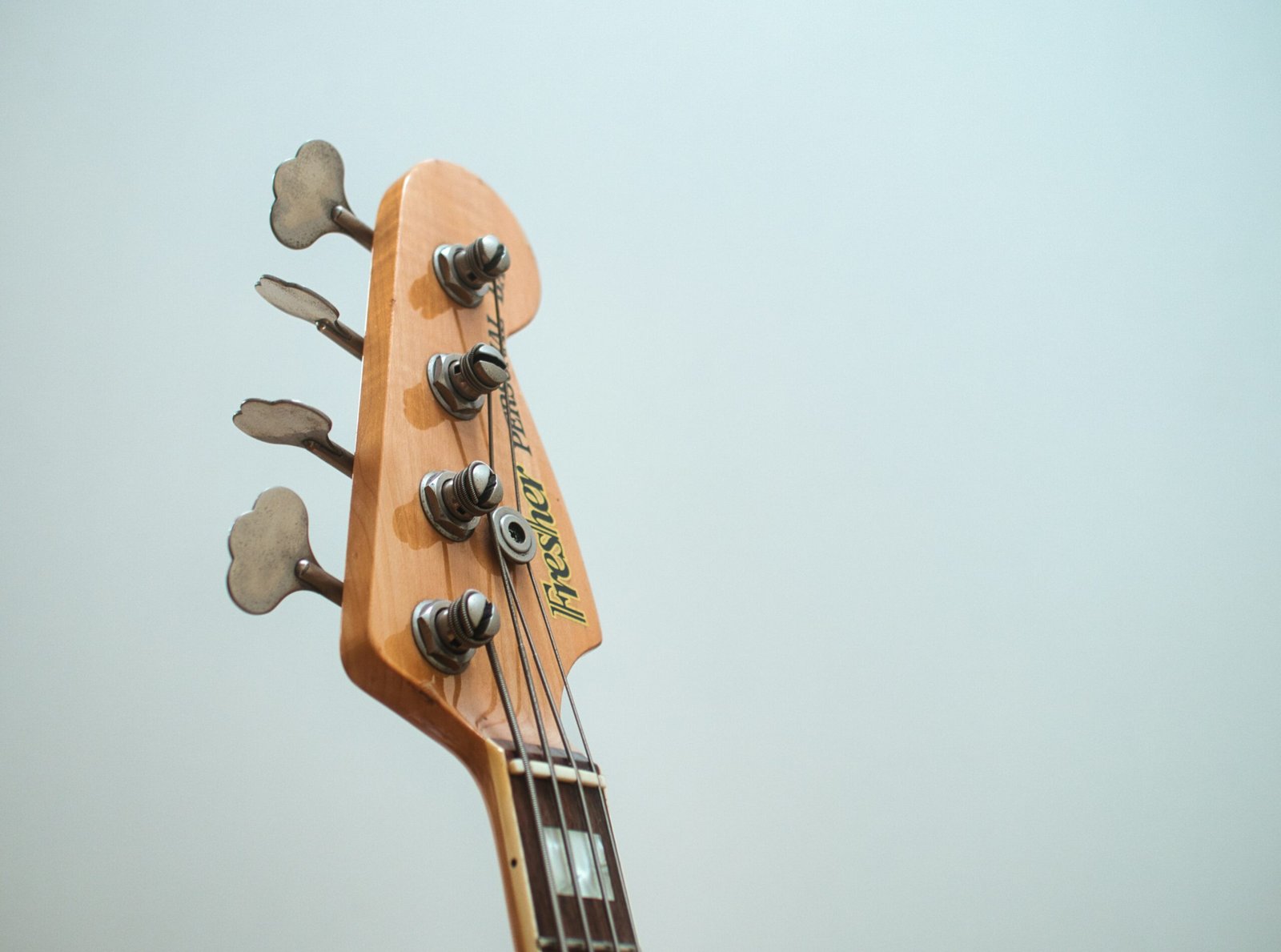A Brief History of Sam Ash Music Stores
Founded in 1924 by Sam Ash, the Sam Ash Music Stores began as a modest music retail operation in New York City. The vision behind the establishment was to provide high-quality musical instruments and gear to musicians, irrespective of their expertise level. Over the decades, the company grew significantly and expanded its reach across the United States, establishing itself as one of the premier retailers in the music industry.
Throughout its history, Sam Ash Music Store achieved several key milestones that shaped its development. By the mid-20th century, Sam Ash began opening additional locations, catering not only to local musicians but also to an expanding national market. This growth was fueled by a focus on customer service and a commitment to fostering musicianship among enthusiasts at all stages of their journey.
The 1970s and 1980s marked a notable transformation for Sam Ash as the music industry underwent significant changes with the rise of genres such as rock, disco, and hip-hop. The company adapted its inventory accordingly, ensuring that musicians had access to the latest instruments and technological advancements. By offering an array of products, from guitars and keyboards to recording equipment, Sam Ash Music Store became synonymous with quality and reliability in the music world.
Additionally, Sam Ash’s commitment to musicians transcended product offerings. The company hosted workshops, instilled a sense of community among music lovers, and often partnered with local schools and programs, further solidifying its role as a pillar in the musical landscape. As it evolved alongside the music industry, the store consistently advocated for musicians from various backgrounds, solidifying its legacy in the retail space.
Spotlight on the New Haven Store
The Sam Ash Music Store located at 95 Amity Road in New Haven, Connecticut, has served as a vital resource for musicians and music lovers alike since its opening. This store has played an essential role in nurturing the local music scene by providing invaluable support through various initiatives. One of the prominent contributions of the New Haven store has been its hosting of community events, which have included live music performances, instrument demonstrations, and workshops tailored for musicians of all skill levels. These gatherings have fostered a sense of camaraderie among local artists and enthusiasts, encouraging collaboration and creativity.
Additionally, the New Haven location has developed strong partnerships with local musicians and music schools. By collaborating with regional artists, the store has not only promoted their work but also offered emerging talents a platform to showcase their skills. Such partnerships have enriched the cultural fabric of the community, as they often involve programs designed to inspire and educate the next generation of musicians. The store also provided essential services such as instrument rentals, repairs, and expert advice, ensuring that local musicians had access to the tools they needed to thrive.
In terms of inventory, the New Haven store was known for its diverse selection of instruments and equipment, catering to various musical genres and preferences. The knowledgeable staff offered insights into products, empowering customers to make informed decisions. With a range of guitars, keyboards, and percussion instruments, as well as accessories, the store positioned itself as a one-stop shop for musicians. This unique inventory, combined with the personalized service, created a welcoming environment that fostered customer loyalty and community engagement.
Community Reaction to the Closure
The closure of the Sam Ash Music Store in New Haven has elicited a wave of emotions among local residents, customers, and musicians, who have gathered to express their sentiments regarding this significant loss. For many, the store served not just as a retail space but as a cultural hub that fostered a sense of community among music lovers and aspiring artists. Customers fondly recall the warm interactions with knowledgeable staff members who were always willing to provide assistance, guidance, or simply engage in discussions about gear and music.
Local musicians have been particularly impacted by the closure, as they frequently relied on the store for equipment, instrument repairs, and access to a wide variety of musical products. Many have shared their disappointment on social media platforms, lamenting the loss of a convenient source for essential items and the unpredictability of finding similar stores in the area. Musicians who once frequented the Sam Ash store also expressed concern about how this loss could potentially affect their ability to connect with other artists and avail themselves of essential resources.
Community members have also acknowledged the broader implications of the store’s closure. Conversations around gentrification and the changing landscape of New Haven have surfaced, highlighting fears that local businesses, particularly ones that cultivate creativity and passion, are disappearing in favor of larger corporate entities. Artistic events and live music performances that once thrived in the vicinity of the store now seem at risk of declining as artists scramble to find new venues and resources. As responses continue to roll in, it is evident that the Sam Ash Music Store was more than just a place to shop; it was a beloved cornerstone of the New Haven music scene. Its closure signifies a substantial cultural shift that will leave a lasting impact on the community.
Reasons Behind the Closure
The announcement of the Sam Ash Music Store’s closure in New Haven has stirred significant conversation within the community. To truly understand this loss, it is essential to delve into the factors contributing to this decision. One primary reason is the ongoing trend of shifting consumer behavior towards online shopping, which has profoundly affected brick-and-mortar retail operations. In recent years, an increasing number of consumers have opted to purchase musical instruments and equipment online, drawn in by the convenience, often wider selections, and competitive pricing available on e-commerce platforms.
This shift has not only diminished store foot traffic but has also placed considerable financial strain on physical retail locations like Sam Ash in New Haven, which may have struggled to compete with online giants. Furthermore, many consumers, especially younger generations, now prefer researching products online before making a purchase, diminishing the role of traditional stores as primary information sources about musical instruments.
In addition to the broad industry trends, this particular location faced unique challenges. The economic climate has been volatile due to several external factors such as the lingering effects of the pandemic, which impacted foot traffic and sales in 2020 and 2021. Many retail businesses have operated with significantly reduced customer numbers, resulting in persistent financial hardships. Moreover, local market dynamics, including increased competition from both local music shops and larger chains, likely exacerbated the difficulties faced by Sam Ash.
In conclusion, the closure of the Sam Ash Music Store in New Haven can be attributed to a combination of shifting consumer purchasing habits, the challenges posed by the current economic landscape, and specific financial pressures faced at this location. As the music retail sector continues to evolve, understanding these underlying causes may offer insights into the future of similar establishments in the community and beyond.
Voices of Customers and Employees
The closure of the Sam Ash Music Store in New Haven has left a void that resonates deeply within the local music community. Many former customers recall their first visits to the store, often describing it as a transformative experience. For instance, one long-time customer shared how the knowledgeable staff helped him select his first guitar, fostering a love for music that has lasted a lifetime. The personalized attention that the employees provided is a common theme in customer reflections, with many expressing gratitude for the guidance they received while purchasing instruments or gear. This sense of community engagement was not only beneficial for individual musicians but also fostered a vibrant network of local artists.
Employees, too, voice strong sentiments regarding their time at the store. A former employee recounted how working at Sam Ash allowed her to connect with aspiring musicians and seasoned professionals alike. She emphasized the collaborative environment, where sharing knowledge about instruments and music production became a norm. Many employees described their roles as more than just jobs; they viewed themselves as integral parts of a larger movement that promoted music education and accessibility in New Haven. The relationships formed with customers often extended beyond transactional interactions, developing into genuine friendships that contributed to the local music culture.
Overall, both customers and employees demonstrate a profound appreciation for the impact that Sam Ash has had on their lives. The store was not merely a retail space; it served as a hub for musicians to gather, share experiences, and grow in their craft. Unfortunately, the closing of the New Haven location signifies a loss that reaches beyond the commercial sphere, affecting the social fabric of the local music scene as well. As the community reevaluates its future without the store, the shared experiences and memories of the past continue to hold significant value.
Impact on Local Musicians and Music Students
The closure of Sam Ash Music Store in New Haven marks a significant loss for local musicians and music students who have depended on this establishment for their instrument needs, equipment rentals, and expert assistance. Physical stores like Sam Ash offer a unique shopping experience that online platforms often cannot replicate. Musicians value the ability to physically test instruments and gear before making a purchase decision, ensuring compatibility with their playing style and proficiency.
Furthermore, many aspiring musicians and students typically rely on personalized service when selecting their first instruments. Staff members at Sam Ash, well-versed in various musical genres and categories, have historically provided tailored advice for beginners and advanced players alike. This guidance is invaluable and fosters a deeper understanding of individual instruments, ultimately resulting in better skill development. The loss of such personalized service poses a challenge for new musicians attempting to navigate the complexities of music education.
The educational ecosystem in New Haven also suffers as a consequence of the store’s closure. Music programs often rely on local stores for essential resources, instruments for school bands, and equipment for fellowships and workshops. The loss of a physical store impairs access to resources, making it increasingly difficult for both instructors and students to acquire necessary materials for educational advancement. This scenario could lead to a decreased interest in music education, ultimately impacting community engagement in the arts.
Furthermore, the closure creates an unfortunate ripple effect among local artists who may have benefited from workshops, collaborations, and events frequently hosted at the store. These gatherings foster a sense of community among musicians, enhancing their creative journey and providing opportunities for performance and networking. The absence of such communal spaces diminishes collaborative efforts that have historically enriched the vibrant music scene of New Haven.
Broader Implications for Music Retail
The closure of the Sam Ash Music Store in New Haven embodies a larger trend impacting music retail both locally and nationwide. This situation may serve as a bellwether for the future of physical music retail as consumer preferences increasingly shift towards online shopping and digital services. As part of a growing phenomenon, many traditional stores across various sectors, including music retail, face significant challenges in maintaining profitability amidst changing market conditions.
Local businesses will need to adapt to this altered landscape if they aim to fill the gap left by the departure of Sam Ash. It is possible that we could see a rise in niche music stores that focus on specific genres, instruments, or community engagement. These types of stores could provide personalized customer service and curated selections that larger chains cannot offer. This model may allow them to carve out a unique space in the local market, catering to dedicated musicians and music enthusiasts who seek a more tailored shopping experience.
Moreover, the growth of online services adds another layer of complexity and competition. With e-commerce platforms dominating many retail sectors, music retailers must consider how to integrate online and offline sales effectively. This may involve offering click-and-collect options, improving web interfaces, and expanding their social media presence to attract a wider audience. The effectiveness of these strategies will play a crucial role in determining the viability of physical locations as consumer behaviors continue to evolve.
Ultimately, the closure of the Sam Ash Music Store serves as a cautionary tale about the challenges facing brick-and-mortar music retailers. It highlights the necessity for them to innovate and adapt to the changing dynamics of consumer behavior and purchasing patterns. The resilience of physical music stores will depend heavily on their capacity to embrace technological advancements while delivering exceptional customer experiences.
Reflections on the Future of Music Retail
The recent closure of the Sam Ash Music Store in New Haven signifies more than just the loss of a local retail option; it raises broader questions regarding the future of music retail across Connecticut and beyond. As consumer preferences evolve, music stores must adapt to the changing landscape shaped by technological advancements and shifting demographics. The decline in brick-and-mortar music stores can be attributed to several factors, including the rise of e-commerce and digital music platforms, both of which offer convenience and expansive selection unavailable in traditional retail settings.
Future music retail may witness a shift toward more experiential offerings. As consumers become increasingly accustomed to online shopping, physical stores could pivot to a model that emphasizes in-store experiences, such as live demonstrations, artist meet-and-greets, and community events. This social dimension is particularly essential for retailers looking to forge deeper connections with musicians and music fans alike. In this context, retailers might explore collaborations with local music schools, offering workshops or instrument rental programs to enhance their community involvement.
In terms of technology, music stores must acknowledge the increasing prominence of online sales and digital instruments. Retailers might consider integrating augmented reality (AR) for trying out instruments or virtual consultations for music-related services. Additionally, online platforms will likely play a crucial role in inventory management and customer engagement, allowing retailers to reach a wider audience while efficiently managing resources.
Ultimately, the closure of the Sam Ash Music Store in New Haven serves as a pivotal reflection point for the future of music retail. Through innovation and new strategies, retailers can navigate the complexities of an ever-changing retail environment, potentially redefining their relevance in the music community.
Conclusion: A Farewell to Sam Ash New Haven
The closure of Sam Ash Music Store in New Haven marks a significant loss for the local community, as it has been a crucial hub for musicians, educators, and music enthusiasts alike. Over the years, the store has contributed not only to the livelihoods of local musicians but also nurtured a thriving music scene that has played an integral role in the cultural fabric of New Haven. The perspectives shared throughout this article highlight the emotional and practical ramifications this closure has for those who depended on the store for instruments, lessons, and community connection.
For many, Sam Ash was more than just a retail destination; it was a gathering place where individuals could share their passion for music. The knowledgeable staff provided personalized service and fostered relationships that extended beyond mere transactions. It offered valuable resources for both seasoned professionals and amateur musicians seeking guidance or inspiration. The void left in the wake of its closing is palpable, as the local music community now faces the challenge of navigating a more fragmented landscape without such a dedicated venue.
Moreover, the loss of Sam Ash New Haven serves as a reminder of the fragility of local enterprises in today’s economy. The shift towards online shopping has had a profound impact on brick-and-mortar stores, making it imperative for community members to actively support local businesses, including music stores. Thus, as we bid farewell to Sam Ash, let us reflect on what this loss signifies for our communities and how vital it is to nurture and support local music initiatives. Only by coming together can we ensure the vibrancy and sustainability of our cherished musical landscape.
















